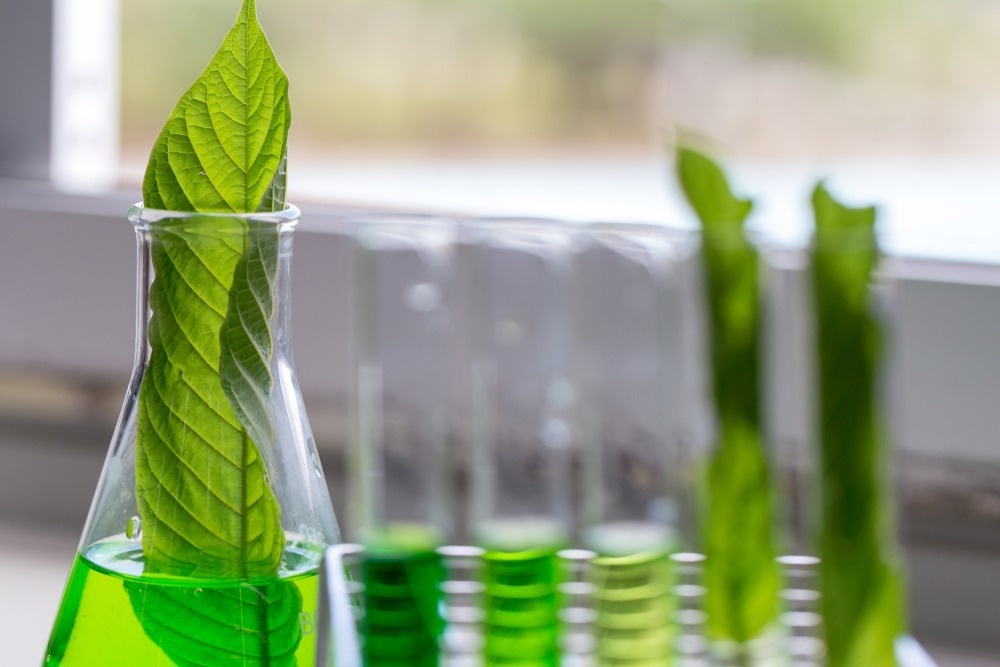Most people have probably never heard of lignin, arguably the most prevalent biomass component. That may change soon.

Image Credit: Rattiya Thongdumhyu/Shutterstock.com
Its biochemical cousin cellulose, a byproduct of the paper and wood milling industry, is well known to many people. But, according to industry analysts, the same procedures generate 50 million tons of lignin each year. 98% of the inky liquid is burnt to create electricity once it has been distilled.
Researchers have been looking for more effective and sustainable methods to turn this naturally occurring polymer into a cleaner and greener building block for use in developing next-generation materials.
According to a new study published in the journal ACS Central Science, scientists at Boston College have created a method for turning lignin into eco-friendly plastics using light.
We developed a catalyst that can selectively break down specific chemical bonds in lignin when it is exposed to light, such that the lignin is converted into intermediate-sized, soluble molecules called oligomers.
Jia Niu, Study Co-Author and Assistant Professor, Chemistry, Boston College
The scientists then transformed the oligomers into eco-friendly plastics by reacting with crosslinkers, a molecular glue, according to the study. The oligomers produced by the catalyst have distinct chemical structures, allowing the plastics produced in this way to be chemically broken down back into the oligomers and reformed from the oligomers and the crosslinker.
The research advances a viable strategy for the circular plastic economy, a system of waste-free polymer production and reuse, according to the study co-author Dunwei Wang, the Margaret A. and Thomas A. Vanderslice Chair in Chemistry at Boston College.
Transitioning from petroleum to biomass as the feedstock for energy and material production can help to address some of the most important challenges our society is facing, such as climate change and plastic pollution. New methods that can make advanced materials from lignin will greatly improve the efficiency for biomass utilization.
Dunwei Wang, Study Co-Author and Margaret A. and Thomas A. Vanderslice Chair, Chemistry, Boston College
Wang and Niu, both interested in creating sustainable materials, chose the project based on Wang’s experience in utilizing photocatalysis to induce chemical transformations and Niu’s work of creating recyclable polymers.
Wang added, “The pleasant surprise was the level of controls we were able to exert in decomposing lignin, which is a biopolymer that is notorious for its difficulty to break down. Such a level of control paves the way for downstream applications.”
The study team wants to improve the novel technique for turning lignin into environmentally sustainable plastics that are easy to recycle chemically.
Graduate students Gavin Giardino and Hongyang Wang, along with former post-doctoral researchers Rong Chen and Cangjie Yang, are also co-authors of the study with Niu and Wang.
Journal Reference:
Wang, H., et al. (2023) Photocatalytic Depolymerization of Native Lignin toward Chemically Recyclable Polymer Networks. ACS Central Science. doi:10.1021/acscentsci.2c01257.